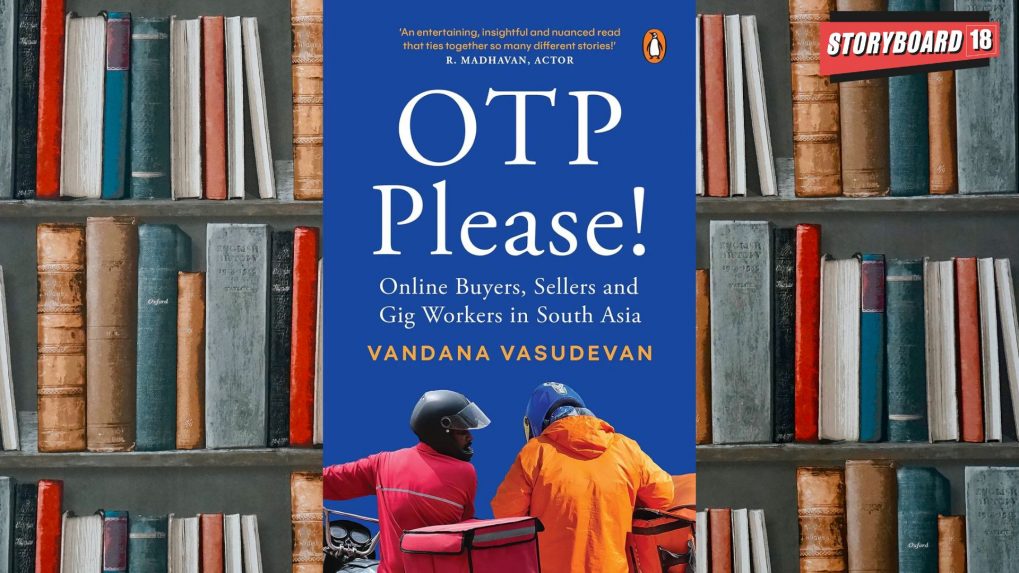'OTP Please's' Vandana Vasudevan: Small retailers feel they must be on Amazon
In a conversation with Reeta Ramamurthy Gupta, author of 'OTP Please' Vandana Vasudevan highlighted, "A restauranteur who was doing just fine with his neighborhood clientele, now feels that he must be on a food delivery app to be seen. There is tremendous FOMO, that the platforms have ‘sort of’ created."
ADVERTISEMENT
Do aggregator websites and platforms sell an illusion of ‘reach’ to their vendors? In a world where 80 percent of cash on delivery orders are cancelled just because customer is king, how does the small business owner plan for inventory within their limited working capital? Also, does the platform take any ownership for the cost of returns?
These are among the many questions Vandana Vasudevan, a PhD in urban development, poses in her book ‘OTP PLEASE- ONLINE BUYERS, SELLERS AND GIG WORKERS IN SOUTH ASIA’.
“First up, are you saying that small business owners have run out of options? There is a lot of helplessness coming through in your book”, I ask.
“Every small retailer feels that if they are not on Amazon, they will miss out. A restauranteur who was doing just fine with his neighborhood clientele, now feels that he must be on a food delivery app to be seen! There is tremendous FOMO, that the platforms have ‘sort of’ created. So small business owners pay for advertisements, absorb discounts and find that they are on a treadmill, giving away ‘more and more,’ while the promised 'market reach' never happened or came at a high premium!”
“The second set of helpless people; the gig workers - also emote strongly via your book,” I remarked.
“One of the key things I wanted the book to do is to unveil the human element behind the digital. Powering the tech at the ground level are armies of human beings working 10-12 hours a day in what is a physically tough, lonely and tenuous job. As customers who are the most pampered among all the stakeholders in the digital ecosystem today, we must recognize that the app per se is technology but it WILL not work (until there are drones!) without the human being,” says Vasudevan.
The book’s canvas is South Asia, so Vasudevan has spoken to folks in Pakistan, Nepal, Bangladesh and Sri Lanka as well, which provides anecdotal relief to a sensitive subject. And across service delivery touch points, the book captures anger, anxiety, oppression and isolation.
These emotions stem from drunk passengers in cabs, refusal to pay for a ride, customers threatening drivers or not being present at the pinned location, delaying permission for the delivery person to enter the society, leaving dogs unleashed etc. These do impact the gig worker delivering the product or service, adversely.
“Its not just the passengers that are anxious at midnight. The drivers are anxious too; drunk passengers misbehave and create unpleasantness,” Vandana emphasizes.
Read More: Kathryn Hurlock: Hope of healing keeps pilgrimages alive
“So with both local business and workers facing the heat, does the 'Make In India' campaign also need to be reimagined? Its seems that too many large forces at play are pushing the small business owners around,” I venture.
Read More: Bookstrapping: Literary tribute to French novelist Marcel Proust
“Small businesses in India have never been tech-oriented,” Vasudevan observes. “In fact it is the one big barrier that MSMEs have always faced. So it is no surprise that they are overwhelmed. We need to ring-fence the small businesses through policies that prevent predatory pricing, copying of products, grievance redressal etc. Else they are getting completely chewed up!”
Indeed. Society has transformed to accommodate aggregators and gig workers alike and this seems to be addictive.
Read More: Laura Spinney: Proto is a tale out of linguistics, archaeology and genetics
“During the pandemic, several apps mushroomed too fast; even before governments in all countries could understand their implications. The Governments have all been caught napping. In India, alternatives to monopolistic platforms have been introduced, like ONDC, Namma Yatri etc. But how many people can wean away from the Amazons and Ubers. remains to be seen,” Vasudevan sums up.
A book that makes some very pertinent observations shaping the present day economy.
Reeta Ramamurthy Gupta is a columnist and bestselling biographer. She is credited with the internationally acclaimed Red Dot Experiment, a decadal six-nation study on how ‘culture impacts communication.’ Asia's first reading coach, you can find her on Instagram @OfficialReetaGupta.


